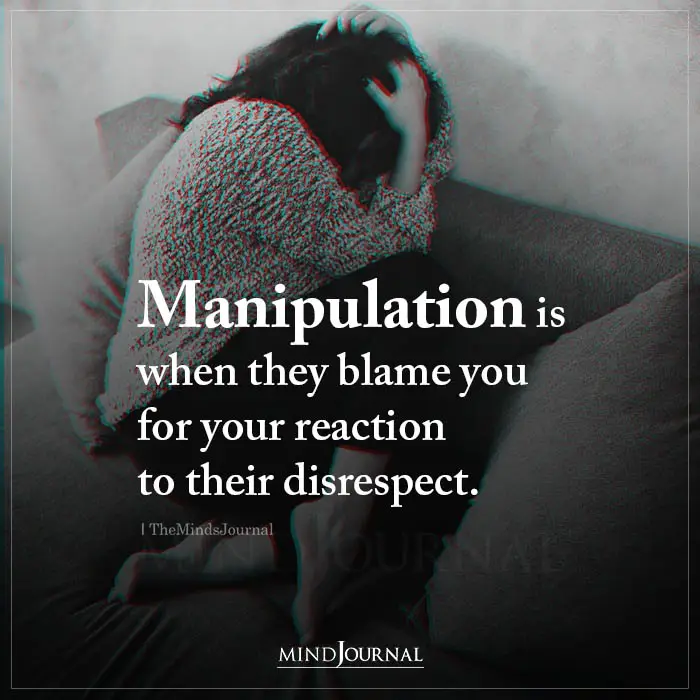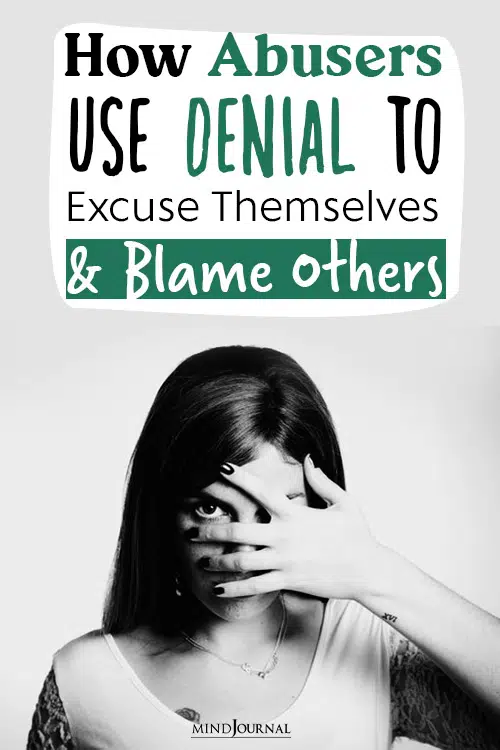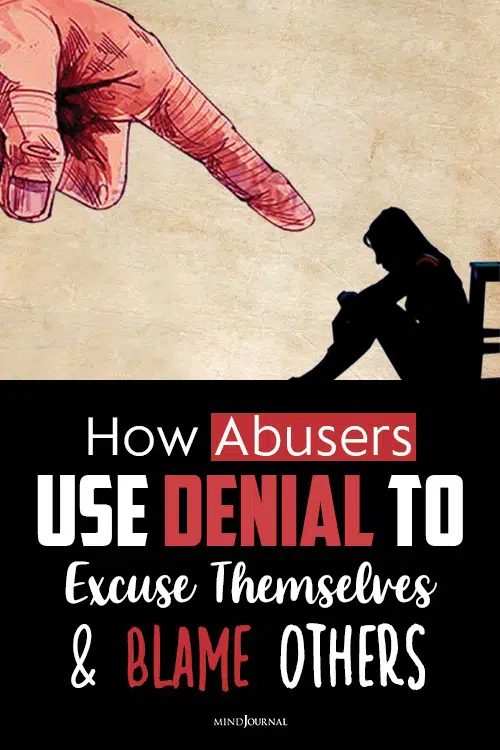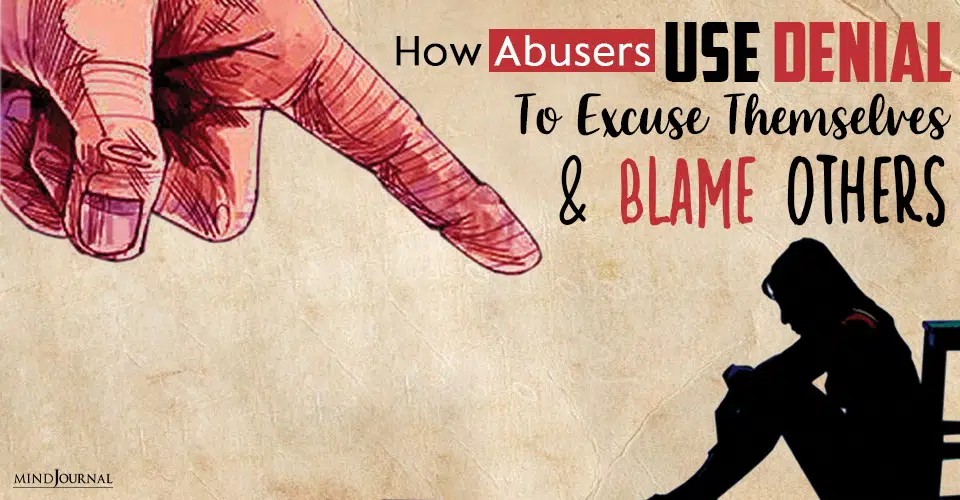Abusers nearly always refuse responsibility and instead claim they are victims. They argue their bad behavior was acceptable or the victim deserved it. Read on to know why.
Michelle Knight was already having a bad day, but it was about to become a nightmare. It was 2002 and she was a 21-year-old single mother who had just lost custody of her son.
She was anxious about a court hearing that would determine whether she could get him back. She left her cousin’s house the morning of the hearing but never made it to the courthouse. She met a man who asked her if she was interested in a puppy she could give to her son.
Michelle was curious, so she went with him in his car. He took her to his house, assaulted her, and bound her hands, neck, and feet. He dragged her to his basement, where a chain was wrapped around her neck and bound to a pole. It would be 10 years before she saw her cousin, son, or any friends and family again.
Thus began a decade of hell, as Michelle’s life now involved sexual assault, humiliation, and degradation. For the first several weeks she was forced to wear a motorcycle helmet, which partially suffocated her and caused her to pass out. She was given a bucket for a toilet and rarely allowed to bathe.
The next year, another victim, Amanda Berry, age 17, was kidnapped and brought to the house, and another, Gina DeJesus, age 14, the year after that. All three women experienced similar horrors, including filth, trauma, being locked in darkness, and rape.
Also read 11 Signs It’s An Emotionally Abusive Relationship
In 2006, Amanda gave birth to a daughter, and Michelle was ordered to assist in the delivery. They used a small inflatable swimming pool as the birthing spot, and Michelle was threatened with death if the baby died. The baby stopped breathing during the delivery, but Michelle was able to resuscitate her.
In 2013, one of the doors was left partially unlocked. Amanda kicked a hole in the bottom of it, shouted for help, and was heard by a neighbor. The police came, found the women, and arrested their abductor, 53-year-old Ariel Castro. He was eventually charged with kidnapping, rape, aggravated murder, attempted murder, and assault. At his hearing, he was allowed to speak on his own behalf. The things he said disturbed and enraged those in the courtroom.
He began: “I just wanted to clear the record that I am not a monster. I did not prey on them… I just acted on my sexual instincts because of my sexual addiction. And God as my witness, I never beat these women like they’re trying to say I did. I never tortured them.” He excused his behavior based on his “addiction,” but went further, mixing truth with lies, denying things that occurred, including the violence. He said, “I am not a violent person. I simply kept them there without being able to leave.”
He also defended his actions based on his victims’ resilience. “I see Gina through the media and she looks normal,” he said. “She acts normal. A person that’s been tortured does not act normal. They’d act withdrawn and everything. On the contrary, she’s happy. Victims aren’t happy.” He continued, “Most of the sex that went on in that house, probably all of it, was consensual. These allegations about being forceful on them—that is totally wrong. Because there were times where they’d even ask me for sex—many times. And I learned that these girls were not virgins. From their testimony to me, they had multiple partners before me, all three of them.”

Even compared to the most hideous abuses, Castro’s deception and denial are appalling. He lied, exaggerated, blamed the victims, and claimed to be a good guy. “I just hope they can find it in their hearts to forgive me,” he continued, “because we had a lot of harmony going on in that home.”
Castro was locked up for life. But instead of remorse or responsibility, he continued to play the victim. “I don’t know if I can take this neglect anymore, and the way I’m being treated,” Castro wrote in a journal while in prison. He complained about the food, his dirty cell, toilet, and treatment from the guards. On September 3, 2013, he hung himself in his cell.
Denial and Defensiveness
The extreme denial, rationalizing, and victim-blaming Ariel Castro displayed was horrifying; unfortunately, it is also common. Perpetrators of atrocious acts excuse themselves, as do abusive and controlling partners.

They argue their bad behavior was acceptable or the victim deserved it. Like Castro, abusers get defensive after they harm others, and they are in denial about what they did or the harm it caused. Many claims that their abuse was for a good purpose, like teaching a lesson, or showing the other person the importance of respect.
Sigmund Freud brought the idea of defense mechanisms to cultural awareness, and since then, we have been using his terms. For example, when your friend downplays his fiancée’s nine former marriages, you say he is in denial. When your spouse gets angry at you for their own issues, we say they are projecting.
Freud observed as many have since, that humans go to great lengths to keep “painful thoughts and emotions out of awareness.” People block out bad memories, ignore others who need help, and refuse to admit their own flaws.
Also read Emotional Blackmail and Its 7 Signs
Although understandable, defenses have a cost. Author Daniel Goleman suggests psychological defenses are analogous to protection from physical injury. Like going into shock, if someone experiences a psychic blow, they shut down and the pain abates, but they aren’t feeling much else either. The drug of defensiveness may help someone temporarily feel better, but it diminishes self-awareness and blocks any improvement or change.
Chronic defensiveness is a key predictor of divorce and relationship failure. Does your partner refuse all responsibility for their actions? Do they respond to concerns with whining, exaggerated indignation, blame, complaining, or distraction? Ariel Castro demonstrated extreme versions of these as he pouted, downplayed his violence, claimed his victims were fine and tried to change the topic to his addiction or his poor treatment in jail. When denial is a common response, it is a sign that things are unlikely to improve and a relationship is in trouble.
References Virginia Goldner, "Morality and multiplicity: Perspectives on the treatment of violence in intimate life," Journal of Marital and Family Therapy 25, no. 3 (1999): 325-336. Phebe Cramer, Protecting the Self: Defense Mechanisms in Action. NY: Guilford Press, 2006, (p. viii) Daniel Goleman, Vital Lies, Simple Truths: The Psychology of Self Deception, Simon and Schuster, 1996. John M Gottman, The Science of Trust: Emotional Attunement for Couples, (New York: WW Norton & Company, 2011), page P. 132 Adapted from J. Whiting, Love Me True: Overcoming the Surprising Ways We Deceive in Relationships. Cedar Fort Publishing. 2016.
Written by: Jason Whiting
Originally appeared on: Psychology Today
Republished with permission










Leave a Reply
You must be logged in to post a comment.